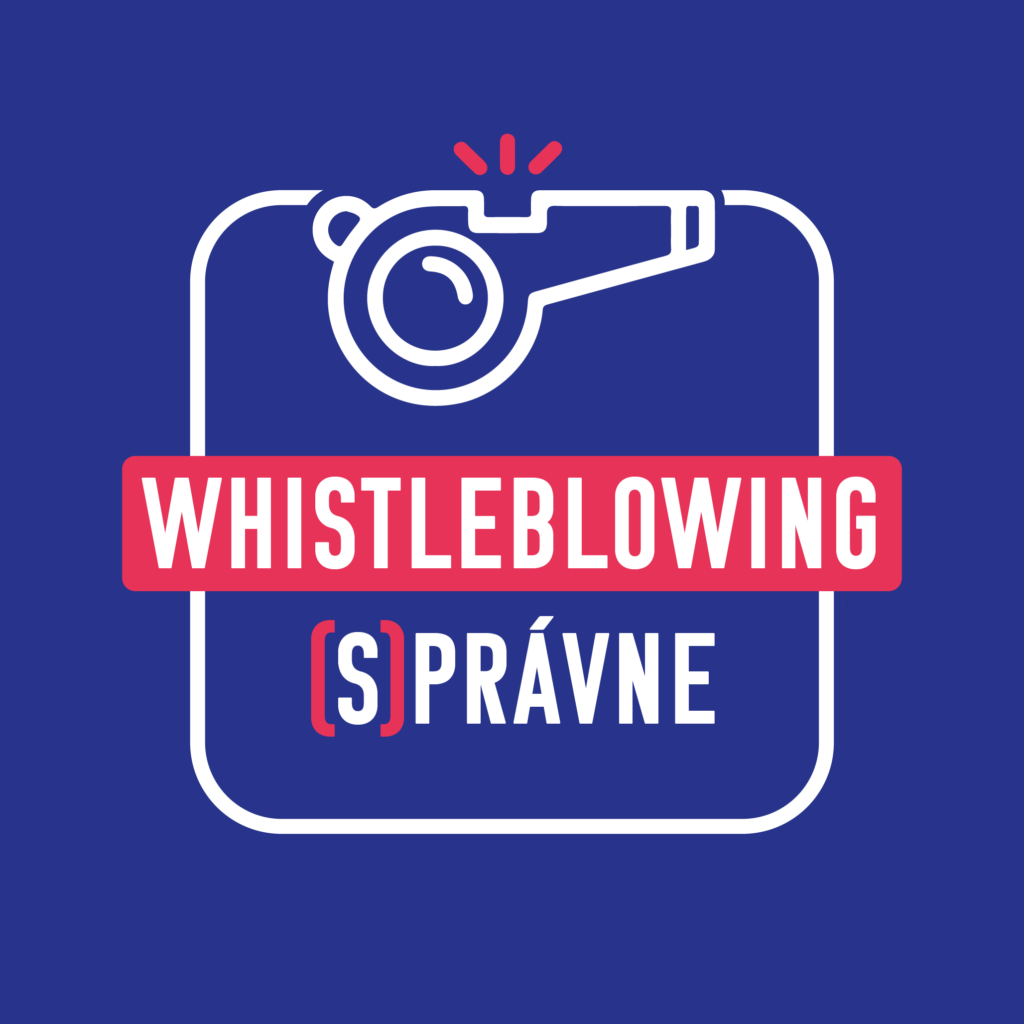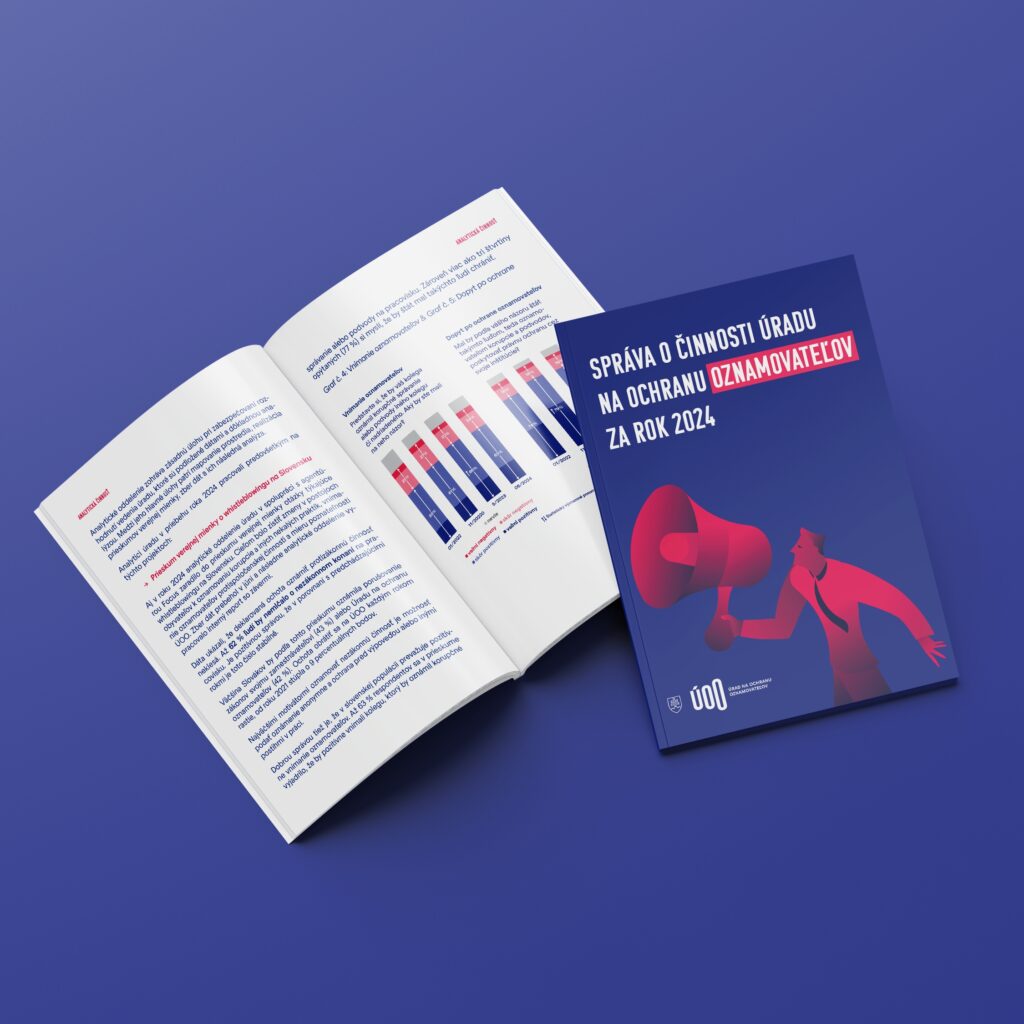It has been a year since the Whistleblower Protection Office in Slovakia (WPO) officially began operating and providing its services to the public. During this period, it has been contacted by 300 people who wanted advice on their case or to report acts they considered criminal.
Now, on its one-year anniversary, the Office is launching a campaign to encourage people not to be afraid to report corruption.
"The kind of society we live in also depends on how we behave at critical moments. I therefore thank all whistleblowers who stood up for the right cause," says Zuzana Dlugošová, the chairwoman of the WPO.
In the one year of the Office's existence, 17 whistleblowers are now protected. These are employees who filed a qualified report of a suspected violation of the law and were subsequently granted this status by a prosecutor or administrative body. In practice, this means that, for example, an employer must have the Office's approval to terminate, reassign, or reduce an employee's salary.
Thanks to the Office, chief economist was not dismissed
There are currently ten criminal proceedings pending in the cases of whistleblowers to the Office. One of them is the case of Maria Koránová, who worked as the chief economist at the Košice Rescue Service and has been given the status of a protected whistleblower by the prosecutor's office.
Ms Koránová reported suspicions to the police concerning economic crime. Her job was subsequently terminated "for organisational reasons". After receiving her dismissal, she applied to the newly established Office of the Director of Public Prosecutions, which, after a thorough investigation of her case, successfully suspended her dismissal. Also thanks to the protection the Office has provided Ms Koránová, she is still employed and receives her full salary even when her employer does not assign her a job.
"This fight is not in vain. I am not alone in this, fortunately there are authorities such as the WPO, organisations, lawyers and other people ready to protect the public interest and the rights of whistleblowers. In the Office for the Protection of Whistleblowers I have encountered a highly professional, professional and human approach, which I appreciate very much," says Ms Koránová.
Thanks to the protection that the Office has given Ms. Koránová, she is still employed, and even when her employer does not assign her a job, she receives her full wages. At the same time, she is awaiting the court's decision on the annulment of her termination of employment, as well as an investigation into the allegations reported to the police. Here again, the Office supports her and links the various state bodies that can help to investigate serious allegations more quickly and efficiently.
The last year has not just been about criminal proceedings
Protecting whistleblowers is also about preventing cases. The Office has therefore mapped how employers in the public sphere comply with the law on internal reporting systems and has reported on this to the government.
"We have also prepared a guide for employers on how to set up good internal reporting systems. For those who are interested, we assist in setting up or streamlining existing internal reporting mechanisms," explains Zuzana Dlugošová.
In addition, the Office trains staff and the wider public on why it is important to report corruption and fraud they encounter at work, how to do so safely and how they can help. So far they have trained over a thousand people.
“Speaking up is golden”
"Our ambition is for as many people as possible to know about the office and the protection and support we can give them. That's why we are launching a communications campaign funded by the Recovery and Resilience Plan. We have built it on the well-known Slovak proverb that ‘silence is gold’. However, when it comes to fraud and corruption, the opposite is true, namely that speaking up is golden", says Zuzana Dlugošová.
They took the symbol of silence - mimes. They are the central theme of the TV spot.
As part of the campaign, the Office is also organising anti-corruption concerts in Bratislava and Žilina, where Jana Kirschner and her band will perform. In addition, discussions on the consequences of corruption in Slovakia are being prepared in Bratislava and Košice in October.
The Whistleblower Protection Office today also published the first episode of the Neumlčaní podcast, which features interviews with Slovak whistleblowers. That is, people who have uncovered corruption or other violations of the law in their work and stood up for the right thing by blowing the whistle.




